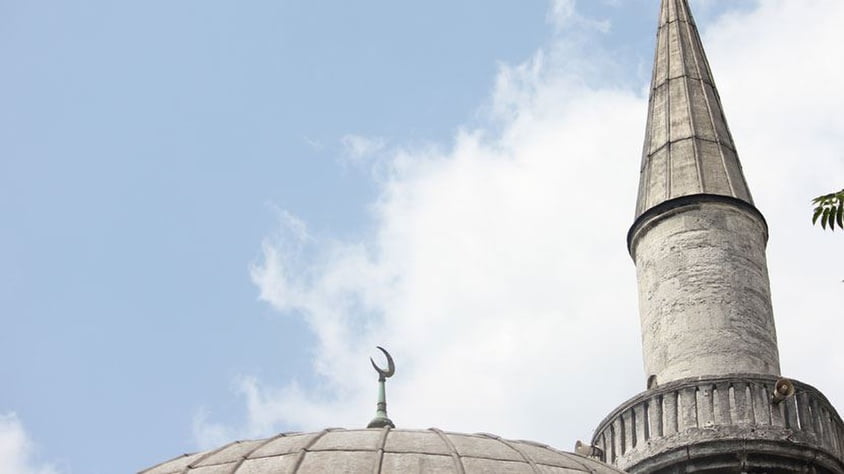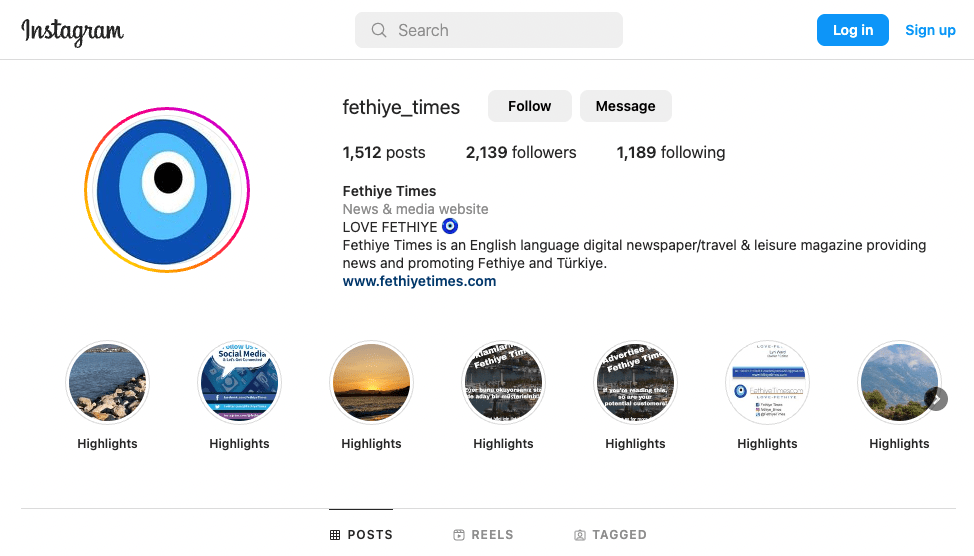Visitors to Fethiye will be familiar with the sound of the ezan but how much do you know about it?
Türkiye is a country that needs to be experienced with all of the senses. Visitors to Fethiye are drawn by photographs of the beautiful, lush Mediterranean scenery, reports of a wonderfully warm climate and friendly, hospitable people. And of course, that’s all true.
Once you arrive you’ll immediately realise there’s much more to being in Fethiye than any information can possibly describe. The feeling of the warm sun on your face, the sound of the sea rippling along the edge of the beaches, the call of the simitci as he walks the streets selling his sesame seed coated bread rings (simits)
One of the most distinctive sounds you will hear is that of the ezan (adhan in Arabic meaning to listen, to hear, be informed about).
What is the ezan?
The Five Pillars of Islam are the five obligations that every Muslim must satisfy in order to live a good and responsible life.
One of these obligations is Salat, performing ritual prayers (namaz) five times each day
The ezan (call to prayer) summons the faithful to the mosque for these prayers.
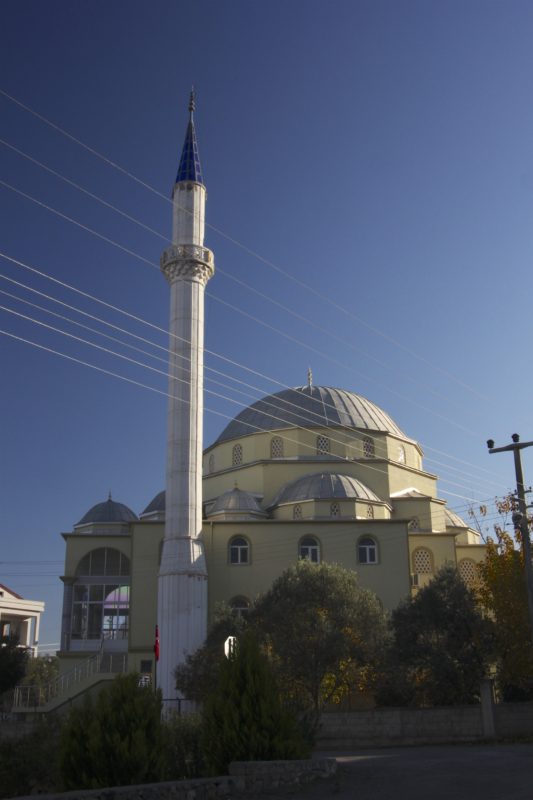
In Türkiye, the call to prayer is a central part of daily life and echoes throughout Türkiye at five set times of the day. The exact time of the ezan is determined by the timing of sunset and sunrise.
Güneş: Dawn (just before the sun appears)
Öğle: Midday (when the sun passes its peak)
İkindi: Afternoon (when objects and their shadows are equal in height)
Akşam: Sunset (when the sun has disappeared below the horizon)
Yatsı: When the last light of day has disappeared
Muslim men should go to the mosque to pray although it is not compulsory as they can pray at home. If they pray in a mosque they get more rewards.
Friday is a congregational prayer held just after noon instead of the Öğle prayer and many Turkish people attend the mosque only on Friday due to work commitments.
Who calls the ezan?
The muezzin is a chosen person at the mosque who leads the call (ezan) to Friday service and the five daily prayers from one of the mosque’s minarets. The muezzin typically recites the call to prayer into a microphone in the main prayer hall where it is then pumped through loudspeakers installed on the minarets.
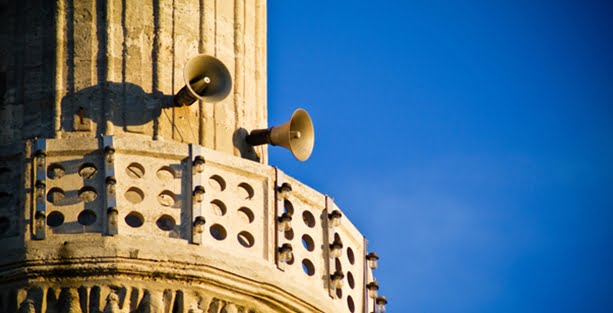
What does the ezan mean?
God is the greatest (Allahu akbar); intoned four times.
I testify that there is no God but Allah (Ashhadu anna la ila ill Allah); intoned twice.
I testify that Mohammed is God’s Prophet (Ashhadu anna Muhammadan rasul Allah); intoned twice.
Come to prayer (Hayya alas salah); intoned twice.
Come to salvation (Hayya alal falah); intoned twice.
God is the greatest (Allahu akbar); intoned twice.
There is no God but Allah (La ilah ill Allah); intoned once.
Another line is sometimes added to the first prayer of the morning (pre-sunrise):
Prayer is better than sleep (Assalatu khayrum minan naum); intoned twice.
Visiting a mosque
Mosques in Türkiye welcome non-Muslim visitors who, when correctly dressed, are allowed to stroll around and spend some time there.
Working mosques can be visited at any time except during prayers.
Shoes must be removed before entering the mosque.
Wear modest, conservative clothing which exposes a minimum of flesh. No shorts or sleeveless shirts on either men or women
Women should wear trousers or a dress or blouse and skirt (at least below the knees), preferably with elbow-length or longer sleeves (no bare shoulders or upper arms), and a headscarf.
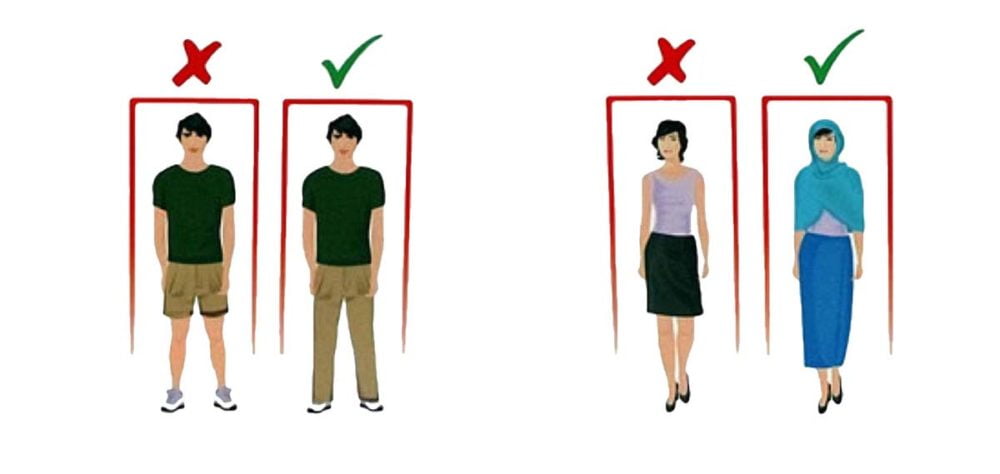
Next time you’re in Fethiye and the muezzin calls the ezan, stop and savour the moment. If you’re lucky enough to be up high you’ll hear it echoing all across the town.
This article was first published on 26 March 2019.

